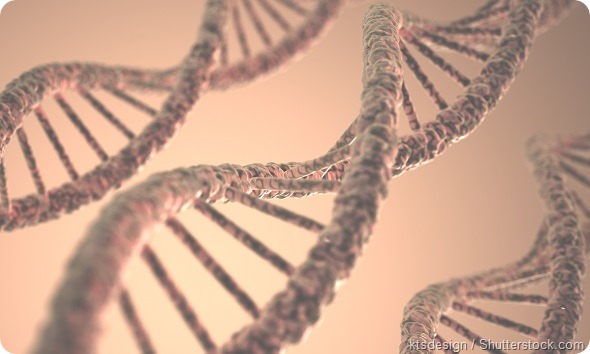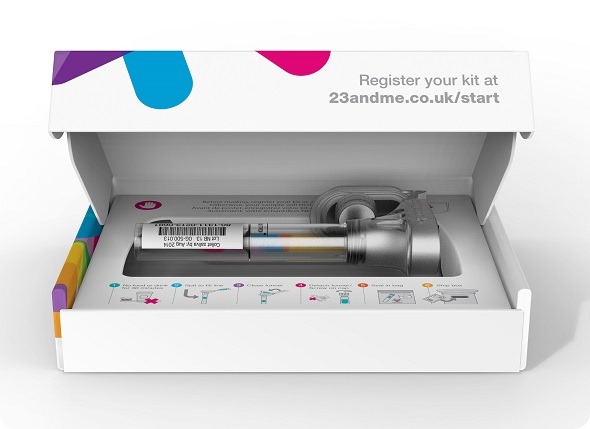The study looked at genetic information of more than 55,000 male 23andMe* customers who consented to participate in research.
Following this first analysis, the collected data was compared to existing data from more than 250,000 women.
The study focused on the genetic regions that influence age at voice breaking - a distinct developmental milestone that happens to young men as their larynx (voice box) lengthens when exposed to male hormones.
*Data was contributed by 23andMe customers who provided informed consent to take part in this research under a protocol approved by the AAHRPP-accredited institutional review board, Ethical and Independent Review Services.

Why has research on puberty timing in men previously been scarce? How did you overcome the associated challenges?
The accuracy with which men can recall their age at voice breaking has been questioned in the past. This had discouraged investigators from asking study participants this information, impeding efforts to directly validate it.
Were you surprised by the strong genetic correlation between male and female puberty timing?
Initially yes, as there are very obvious physical differences in pubertal development between boys and girls.
The similarity however likely reflects that many of the underlying biological mechanisms are core to initiating the hormonal triggers for pubertal onset.
Did you find any new genetic variants associated with puberty timing?
Yes, we identified five additional genetic variants influencing puberty timing in one or both sexes. These genetic variants implicated additional genes in some of the same biological pathways previously implicated, in particular retinoic acid signalling.
How did the study look at the relevance of male puberty timing in impacting health and the development of diseases?
We performed “genetic correlation” analyses to determine how often genetic variants and genes regulating puberty timing were shared with those regulating these diseases. We found that in many cases there was a significant amount of sharing, particularly for cardio metabolic traits.

Why do you think earlier puberty appeared genetically linked to poorer health outcomes in men? Is this the same in women?
This observation is supported by other epidemiological studies that have consistently found a link between earlier puberty and poorer metabolic health outcomes (particularly type 2 diabetes, obesity and cardiovascular disease).
Some of these associations are likely explained by increased childhood adiposity, which is a trigger for early puberty and strong risk factor for adult obesity and disease risk.
It is however possible that other currently unknown mechanisms link puberty timing to disease risk, and our current and previous genetic studies support this notion.
What further research is needed to understand this link?
Related to the point above, it is important to understand what mechanisms link variability in puberty timing to the risk of diseases decades later. This can only be achieved using a combination of different study approaches, including additional epidemiological, genetic and other molecular biology approaches.
Do you think preventing early puberty in men and women would impact on health outcomes?
That is certainly a possibility, although further scientific and clinical studies are required to directly assess that.
What is currently known about ways to prevent early puberty?
Maintaining a healthy weight and good nutrition are known to be important factors in preventing early pubertal development, however genetics and other factors will also be relevant.

What are the main challenges we face in increasing our understanding of genetic factors in puberty timing? How do you think 23andMe can help?
One of the biggest rate limiting steps is the availability of studies with genotyped participants and detailed reproductive information recorded. Increasing these will give us more power to identify additional genetic variants.
We also currently have technological limitations in our ability to test [in a high throughput way] how the identified genetic variants mediate their effects at the protein level.
23andMe currently has over 900,000 customers participating in research. On average, a customer who chooses to opt-in to research contributes to hundreds of studies that range from Parkinson’s disease to lupus to studies like this. This new way of conducting research holds the promise of accelerating the pace of discovery and improving the understanding of how genetics influences our lives.

Where can readers find more information?
The paper is published open access with Nature Communications: http://dx.doi.org/10.1038/ncomms9842
About John Perry
 John is a Senior Investigator Scientist with a primary interest in understanding the aetiology of, and relationships between, reproductive ageing and type 2 diabetes.
John is a Senior Investigator Scientist with a primary interest in understanding the aetiology of, and relationships between, reproductive ageing and type 2 diabetes.
Prior to this appointment he was a Sir Henry Wellcome fellow, holding positions at the University of Exeter Medical School, Wellcome Trust Centre for Human Genetics (University of Oxford), Department of Twin Research (Kings College London) and the Center for Statistical Genetics at the University of Michigan.
John has co-authored more than seventy publications in peer reviewed journals, including 18 in Nature Genetics and 9 in Nature/Science.